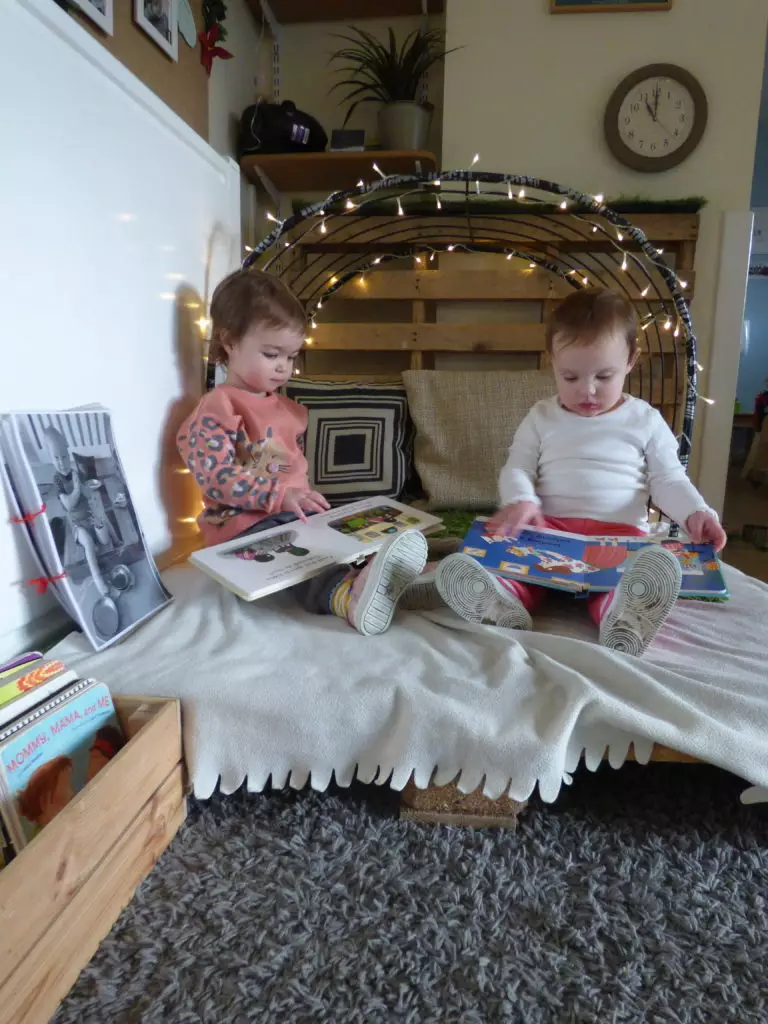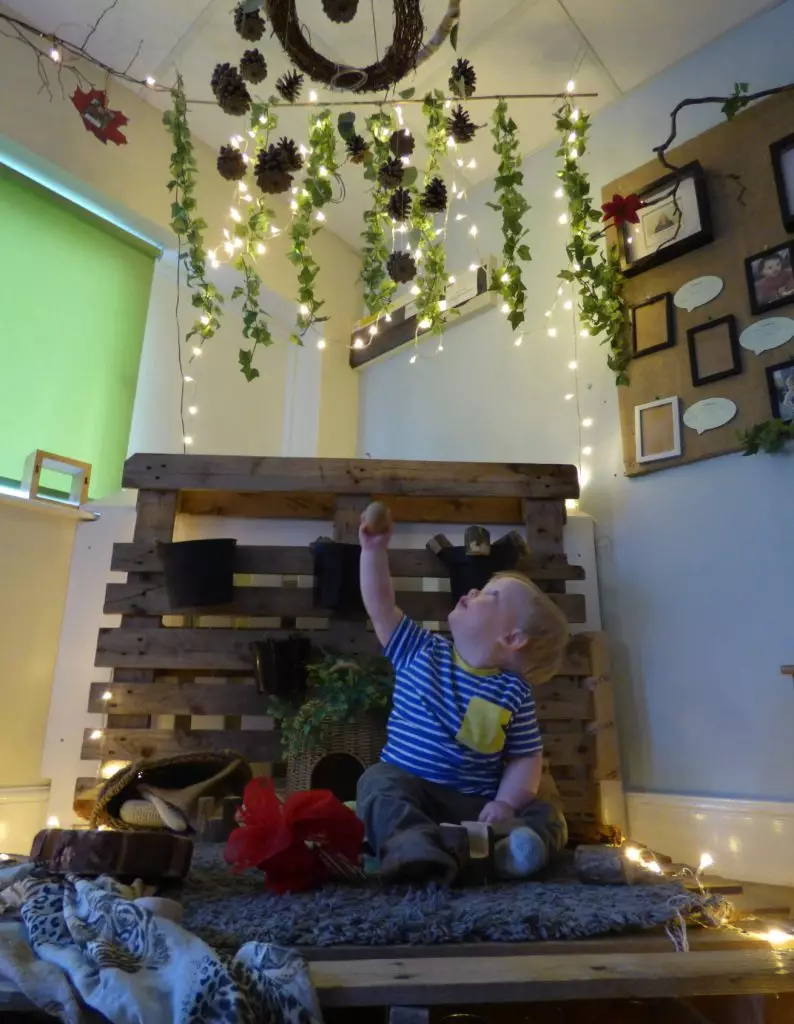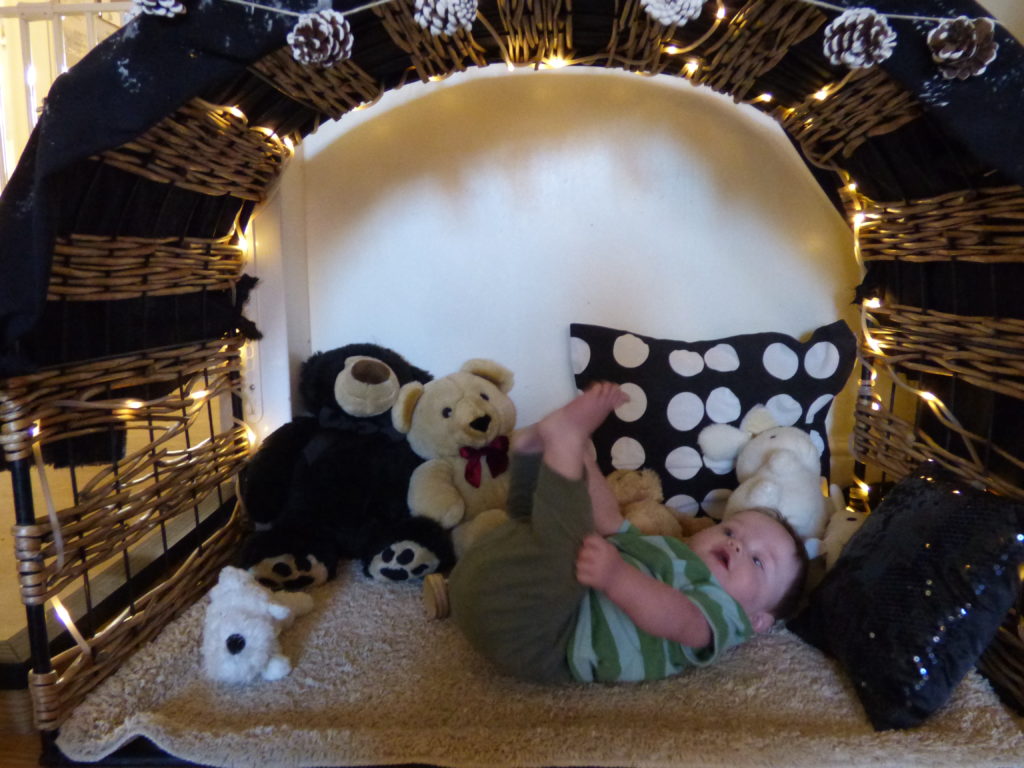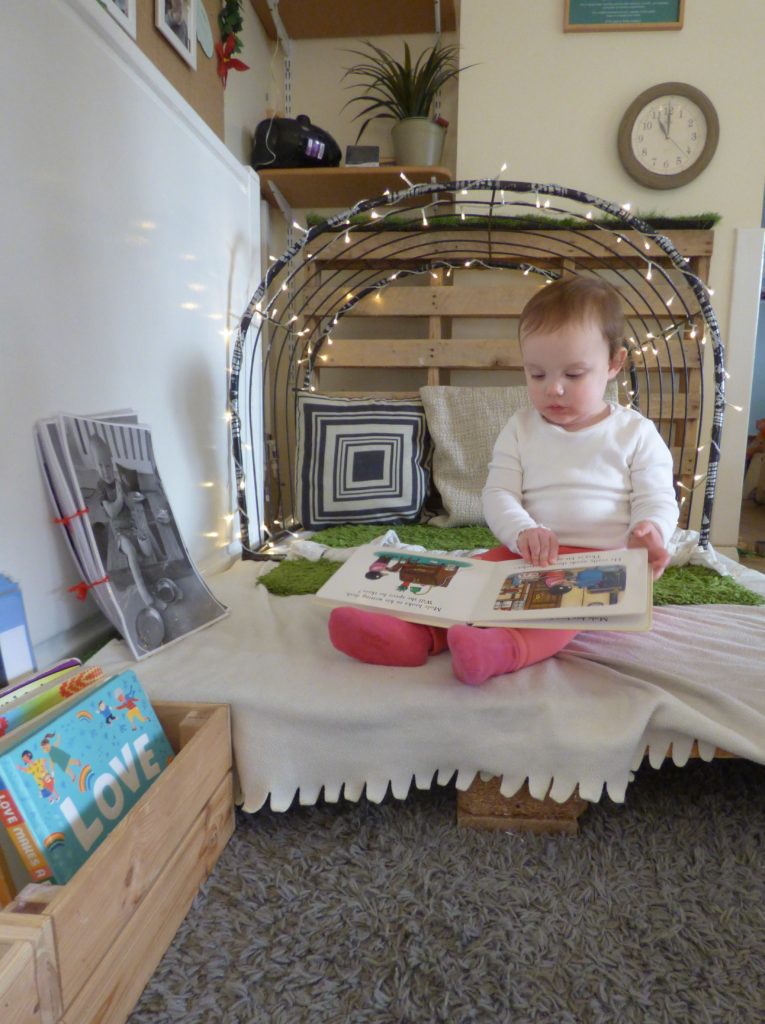

The approach for creating an effective early years learning environment
Creating an effective early years learning environment requires designing warm and relaxing spaces teamed with interesting and enriching activities for children to explore. As our recent ISI inspection report notes “Children demonstrate the confidence to explore and learn in a warm, appealing and carefully lit environment furnished with natural materials.” We also like to ensure that every interaction with our staff counts to help build confidence and resilience. Some of the key aspects for creating an effective early years learning environment are detailed below, if you’d like to read more about our work our latest ISI Inspection report, November 2021 is available to read online.
1. Creating a Home from home
We have created a learning environment which mirrors many features of a home environment. Throughout our learning spaces we hang twinkly lights and lamps to create cosy and calm spaces. Calming music is used at specific points during the day and children can often be seen tucked up under a blanket sharing a story.
2. creating Invitations to play
Carefully considered resources are selected to invite children to play. The materials on offer are often open-ended, which means they can be used in many different ways. Staff spend time creating exciting spaces to entice the children to explore and learn. Examples of this include Carpet Kingdom, The Message Centre, Cosy Club and the Builders’ Yard. Staff frequently talk to the children about the skills that they are learning and how they could help them become future Engineers, Scientist or Architects.
3. Real, authentic resources
Carefully planned resources are used to support and challenge children’s development. We are always on the lookout for resources which will promote curiosity, awe and wonder, which in turn also promote interesting and varied vocabulary.
4. Role of the Early Learning Facilitator (ELF)
We realise that the staff are the children’s biggest resource and so we spend lots of time upskilling our staff to ensure that every interaction counts. Across the early years, we refer to the adults as Early Learning Facilitators (ELFs). We are lucky to have a team of very passionate and enthusiastic ELFs. Their role is varied and may cover any of the following areas:
- Supporting play, as well as observing children and maintaining engagement and challenge.
- Tuning into each unique child by observing and interacting sensitively.
- Following children’s interests.
- Modelling a ‘can do’ attitude and teaching the children the skills that they need to be independent and to persevere.
- Modelling the progression of skills.
- Supporting children to understand that making mistakes is an important part of the learning process.
- Teaching children the skills of making friends, being kind, negotiating, taking turns, and collaborating.
- Modelling how to be reflective and to make links in learning.
5. Effective interactions
We understand that the quantity and quality of interactions makes the difference to a child’s physical, emotional and intellectual development, so we spend a considerable amount of time upskilling our staff team to understand what makes an effective interaction. Here are some of our top tips:
- Get down to the children’s level and demonstrate genuine warmth and interest.
- Follow the children’s lead.
- Wait and allow the children time to start the conversation.
- Talk about what the children are doing with a wondering approach rather than too many direct questions.
- Build up children’s sentences by repeating what they say and adding words.
- Create a ‘thinking time’ culture where children genuinely feel that they have time to think and not that the adult is ‘waiting for an answer.’
- Provide plenty of opportunities for extended conversations with adults throughout the day.
6. A language rich learning environment
Enriching and widening children’s vocabulary is at the forefront of everything we do. Staff regularly model exciting new vocabulary which the children then apply in their learning.
7. Books to inspire
Books covering different genres feature heavily throughout our learning spaces. These are used by staff and children to ignite imaginations and for research opportunities. Some of our favourites include Ada Twist Scientist, Rosie Revere Engineer, and Iggy Peck Architect.
“Children are clearly happy and contented in the setting. Their emotional development benefits from warm, reciprocal relationships with all carers, especially their own key people.”
ISI Inspection Report, November 2021
Admissions are now open for 2023. Limited places are still available for 2022. Contact us to request a private tour or to find out more contact our Admissions team.

